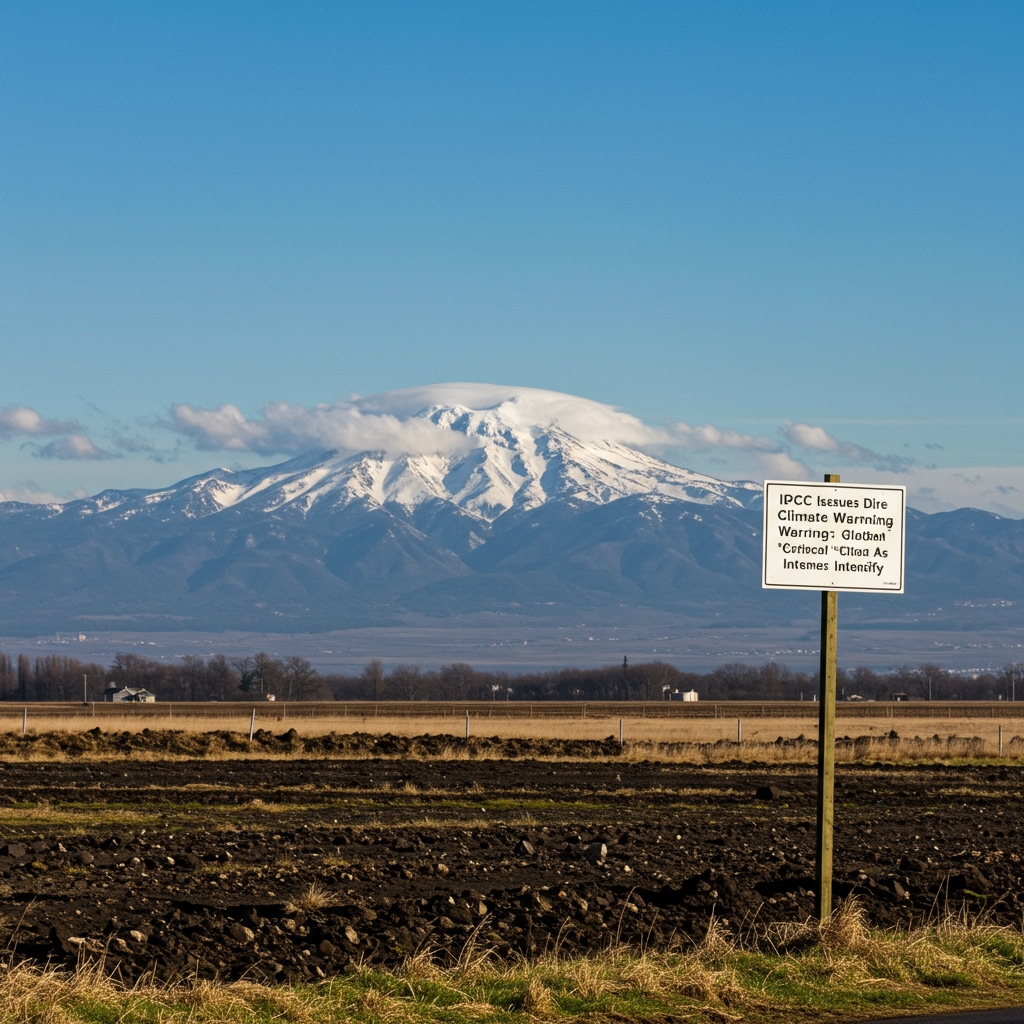Urgent Climate Alert from the UN
A landmark report from the Intergovernmental Panel on Climate Change (IPCC), the United Nations body responsible for assessing the science related to climate change, was published today, delivering a stark and urgent warning to the global community. The report synthesizes the latest scientific findings, painting a grim picture of an accelerating climate crisis that is outpacing previous projections and demanding immediate, drastic action from nations worldwide.
Accelerating Impacts and Exceeded Predictions
Among the most concerning findings detailed in the IPCC’s new assessment are clear indicators of climate change progressing at a faster rate than previously predicted. The report provides compelling evidence of accelerating sea-level rise. This phenomenon, driven by thermal expansion of warming ocean waters and the increasing melt of glaciers and ice sheets across the globe, poses an existential threat to low-lying coastal communities and island nations. The pace of this rise is now demonstrably quicker than forecasts made in earlier IPCC assessments, increasing the urgency for adaptation measures and emissions reductions to limit future ascent.
Concurrently, the report highlights a significant increase in the frequency and intensity of extreme weather events. From devastating heatwaves and prolonged droughts to unprecedented heavy rainfall leading to floods and more powerful storms, the fingerprints of climate change are becoming undeniable and more prevalent across all regions. The scientific consensus presented confirms that many recent extreme weather occurrences, previously considered rare, are now becoming more common, with this trend expected to worsen significantly without rapid intervention. This intensification of extremes has profound implications for human safety, infrastructure, agriculture, and ecosystems globally.
The Shrinking Window for 1.5°C
A central theme of the IPCC’s latest publication is the precarious state of the global goal to limit warming to 1.5°C above pre-industrial levels. This ambitious target, enshrined in the Paris Agreement, is widely considered a critical threshold to avoid the most catastrophic and irreversible impacts of climate change. However, the report unequivocally warns that current global emission reduction targets are insufficient to achieve this vital objective. Analysis of Nationally Determined Contributions (NDCs) – the climate action plans submitted by individual countries under the Paris Agreement – reveals a significant gap between current pledges and the emissions cuts needed to stay on a 1.5°C pathway. The report makes it chillingly clear that maintaining the current trajectory would likely lead to warming far exceeding 1.5°C, potentially reaching levels that trigger widespread environmental collapse and humanitarian crises.
Critical Need for Enhanced Nationally Determined Contributions
In response to this alarming assessment, the IPCC report issues a critical call to action: nations must significantly enhance their Nationally Determined Contributions (NDCs) before the next major climate summit. This call underscores the urgency for countries to revise their climate pledges upwards, committing to deeper, faster cuts in greenhouse gas emissions across all sectors. The report stresses that incremental changes will not suffice; a transformative shift in policy, investment, and behavior is required globally. The window for effective action is closing rapidly, and delaying more ambitious targets will only increase the costs and challenges of addressing climate change in the future. The next climate summit represents a crucial deadline for countries to demonstrate renewed commitment and collective ambition commensurate with the scale of the crisis outlined by the scientific community.
Regional Vulnerabilities and the Economic Case for Transition
The report also delves into specific regional vulnerabilities, detailing how different parts of the world are already experiencing and will continue to face unique and disproportionate impacts from climate change. Coastal communities are increasingly threatened by sea-level rise and storm surges. Arid and semi-arid regions face exacerbated water scarcity and desertification. High-latitude areas are warming at alarming rates, impacting permafrost and Arctic ecosystems. Vulnerable populations, particularly in developing countries and indigenous communities, often bear the brunt of climate impacts despite contributing the least to historical emissions. Understanding these regional differences is crucial for developing targeted adaptation strategies and ensuring climate justice.
Crucially, the IPCC report doesn’t just highlight the dangers; it also underscores the economic benefits of transitioning to renewable energy sources. Moving away from fossil fuels towards cleaner alternatives like solar, wind, and geothermal power is presented not merely as an environmental necessity but as a pathway to sustainable economic development. The report points to opportunities for job creation in green industries, enhanced energy security by reducing reliance on volatile fossil fuel markets, improved public health outcomes due to reduced air pollution, and the potential for technological innovation and competitiveness in the global low-carbon economy. The long-term economic advantages of a proactive, green transition significantly outweigh the costs of inaction and the mounting damages projected from unchecked climate change impacts.
Conclusion: A Defining Moment
In summary, the IPCC’s report published today serves as the most definitive and alarming assessment of the climate crisis to date. It leaves no room for doubt: climate change is accelerating, its impacts are intensifying faster than predicted, and current global efforts are falling dangerously short of the targets needed to secure a safe future. The report presents a clear, urgent mandate for nations to drastically enhance their climate ambitions, particularly their NDCs, ahead of the next major global climate negotiations. While the challenges are immense, the report also provides a path forward, emphasizing the scientific consensus on necessary actions and highlighting the significant economic and social benefits inherent in a rapid, equitable transition to a sustainable, low-carbon world. The findings underscore that the choices made today and in the immediate years ahead will define the climate future for generations to come.





